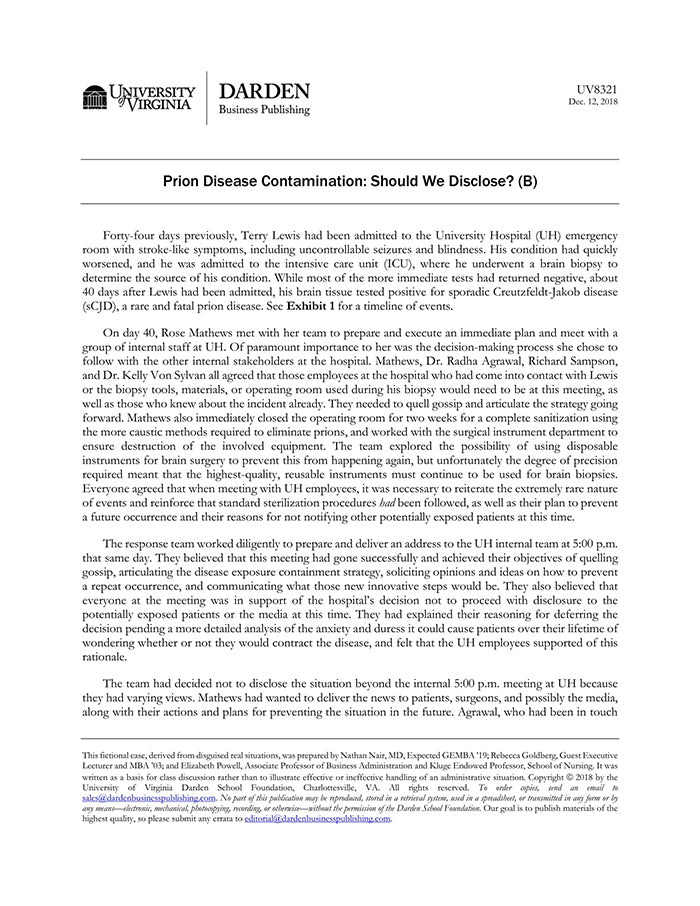Prion Disease Contamination: Should We Disclose? (B)
受取状況を読み込めませんでした
In the A case, Rose Matthews, vice president for patient advocacy at University Hospital, must decide how to handle a startling discovery about patient risk. Weeks after a patient dies, lab results revealed the cause was prion disease, a deadly condition similar to mad cow disease. Since the diagnosis of this very rare condition was not known at the time of the patient's brain biopsy, surgical instruments used for the procedure were conventionally sterilized (rather than using special methods required to kill prions) and reused in up to 100 other surgeries. Now Matthews and her team must decide an ethical communication dilemma: (1) disclose the potential, though very low risk that patients may years later develop the disease; or (2) choose to protect patients from mental anguish related to worrying about a disease they most likely will not develop. The B case reveals that the medical team decided not to disclose this news to patients, only to have the news leaked to the media by a disgruntled hospital employee. The forthcoming teaching note offers three potential teaching plans for this case depending on the desired learning objectives: (1) writing a risk or crisis communication plan; (2) setting up a two-minute role-play of an oral statement delivered at the beginning of an internal meeting or for a press conference; and (3) responding to the media leak.
【書誌情報】
ページ数:3ページ
サイズ:A4
商品番号:HBSP-UV8321
発行日:2018/12/12
登録日:2021/8/19


